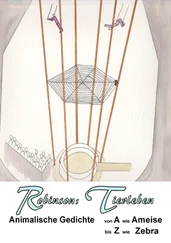
ROXANA ROBINSON
Cost

Part - I PART I
Chapter One
Chapter Two
Chapter Three
Chapter Four
Chapter Five
Chapter Six
Part - II
Chapter Seven
Chapter Eight
Chapter Nine
Chapter Ten
Chapter Eleven
Chapter Twelve
Chapter Thirteen
Chapter Fourteen
Chapter Fifteen
Chapter Sixteen
Chapter Seventeen
Chapter Eighteen
Part - III
Chapter Nineteen
Chapter Twenty
Chapter Twenty-One
Chapter Twenty-Two
Chapter Twenty-Three
Chapter Twenty-Four
Chapter Twenty-Five
Chapter Twenty-Six
Chapter Twenty-Seven
Chapter Twenty-Eight
Chapter Twenty-Nine
Chapter Thirty
Chapter Thirty-One
Part - IV
Chapter Thirty-Two
Chapter Thirty-Three
Chapter Thirty-Four
Acknowledgments
About the Author
A Note About the Author
Praise
By the Same Author
Copyright
About the Publisher
PART I
Her memory was gone.
It came to Katharine like a soft shock, like a blow inside the head. She was in the yellow bedroom at her daughter's house in Maine, standing at the bureau, getting ready for lunch. She'd just finished doing her hair, smoothing it back to her modest bun, tucking in the small combs to hold it in place. The combs were hardly necessary now, her long, fine hair—still mostly black—had turned wispy and weightless, and no longer needed restraint. But vanity, like beauty, is partly habit, and Katharine still put the combs carefully into her thinning hair, though now they slipped easily out, then vanished, beneath the furniture, against the patterns of the rugs.
Hair done, combs briefly and precariously in place, Katharine looked around for her scarf. It was an old soft cotton one, a blue paisley square. She'd worn it once at a birthday party, and now, for a moment, in her daughter's guest room with its faded yellow walls, the sunlight slanting onto the worn wooden floors, the idea of the scarf and the party seemed confusingly to merge. She had a sudden sense of the party blooming around her—a blur of voices, laughter, a fireplace—a sense of pleasure at being with these people, whoever they were. Green demitasse cups, those tiny tinkling spoons, a tall brass lamp by the fireplace—or was that somewhere else?
She tried to remember herself further into it, but could not. She could not mentally arrive at the event. She stood at the bureau, her mind groping. Everything else about the party—whom it was for, when it had happened, where—had vanished. The small, hard, bright facts, like nails that should connect it to the rest of her life, were missing. The place where her memory had been was gone, blurrily erased, like a window grayed by mist. Beyond it was unknown space.
Other things, besides that party, were vanishing—the names and places she depended on, the familiar links that made up her past. This was happening gradually, as though pieces of her mind were breaking off and floating away, like ice in a river. She couldn't stop it, she didn't want to think about it.
But now, standing at the bureau, this realization rose up around her, closing in on her like a high breaking wave. She felt as though she were being held helpless and still, while the rest of her awareness slid past her, increasingly fast. Who were you if you had no past? If you existed nowhere but in this room, right now? If your life were being swept away from you?
Katharine stood still, disoriented by the thought. She held on to the bureau with both hands, bracing herself, as though this were a fast current she might be able to resist. She looked down at the hands before her: they did not seem to be hers. They were mottled and swollen, slow with arthritis, the knuckles thick. She'd always had graceful hands, pale, with long narrow fingers. Hadn't she?
She stood without moving in her daughter's yellow guest room, gripping the bureau and looking down at her things as though they might keep her steady: the blue cotton scarf, which was right in front of her; the spray bottle of lavender cologne—the scent reminding her of her mother—missing its cap; a round silver pin etched with leaves—a birthday present, years ago, but from whom? One of the children, she thought: it still held a strong charge of affection. She saw all these things in front of her, whole, present, while that thought ranged greedily through her mind—radical, bewildering, calamitous—her memory was gone.
Julia, in the kitchen, was making lunch, moving quickly, her movements hurried, slightly inept: having her parents in the house put her on high alert, her pulse thrumming. When they were here, there was not enough of her. She should be everywhere, all the time—in the bedroom, helping her mother find a lost comb; in the cellar, looking for a tool for her father; out on the porch, quickly sweeping it before lunch; in the kitchen, fixing meals.
Julia wanted her parents here—she loved them—but their presence altered her gravity. She had to struggle to stay upright. As she swung open the door of the refrigerator, leaning into its chilly radiance, taking out the wrapped packet of ham, the mayonnaise, she could feel the beat of anxiety, the hurrying of her pulse. Down the hall, in the yellow room, were her parents, breathing, speaking, about to need something.
What she felt when her parents were here was something large and unsayable, confusing, nearly unbearable. Affection, anxiety, resentment— although she was an adult, with her own children, nearly grown, and she should long ago have moved beyond this confusion. But her parents' presence still unsettled her. When they were here, the house seemed small and ill equipped, the doors put on backward, the light switches unconnected, a troubling dreamscape where nothing was right.
Deliberately, Julia slowed herself down. She drew a long breath. Relax. Deliberately she took down the blue-and-white-striped plates, set them down on the counter. You can't do everything, she told herself sensibly. (Why did good advice come in platitudes?) Her parents enjoyed it here. The visit itself, that was what she was giving them. Julia liked having them here, liked offering them all this, the summer day, the house, with its faintly spicy, cedary smell. The early-morning twittering of finches in the lilacs. The sun on the tall ferns that crowded the back porch. The long pink grass of the meadow, rippling down to the cove. These were the things her parents were here for. And herself. Her parents were here to see her. They loved her.
She drew another long, calming breath, releasing the clutch of anxiety. She picked up the jar of mayonnaise. Twisting the top, she felt its hidden threads turn smoothly beneath her hands, unlocking the grip of metal on glass, and felt sudden pleasure at the way things worked, at the way one neat circular motion did exactly what it should. A ripple of admiration for the whole mechanized world of gears, cogs, ratchets, levers, pulleys—the physical systems that made things work. It was brilliant, the way people — men, really, engineers were mostly men, despite feminism — had established such ingenious control over the world of objects.
What she wanted was to make her parents happy. It didn't matter when they had lunch, or if the porch had been swept. She unwrapped the damp translucent packet of meat. (There was something indecent about sliced ham, about the look of it, that pink succulence, its clinging moistness.)
Читать дальше














